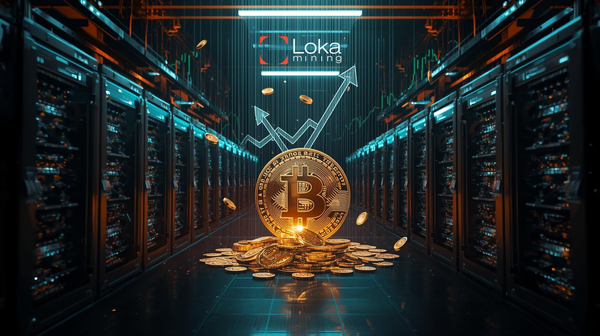Governance in Blockchain: How Decentralization Challenges Traditional Power Structures

Blockchain technology has fundamentally transformed the way systems are governed by introducing decentralization. Unlike traditional governance models that rely on centralized authorities, blockchain-based governance redistributes decision-making power across a network of participants. This approach is reshaping industries, reducing corruption risks, and fostering innovation while simultaneously posing new challenges to existing power structures.
Understanding Blockchain Governance
Blockchain governance refers to the rules and processes through which decisions are made about the development, operation, and maintenance of a blockchain network. Governance models in blockchain can generally be categorized into two types: on-chain governance and off-chain governance.
On-Chain Governance
In on-chain governance, decision-making is automated and encoded into the blockchain. Participants, often token holders, vote directly on protocol changes or network upgrades. Examples of platforms that employ on-chain governance include Tezos, Polkadot, and EOS.
Advantages: On-chain governance is transparent and efficient, with decisions executed automatically after a consensus is reached.
Disadvantages: It can lead to centralization if a small group of large token holders dominates voting power, potentially creating a plutocratic system.
Off-Chain Governance
Off-chain governance involves decision-making processes that occur outside the blockchain. It relies on discussions, community consensus, and informal agreements, often guided by core developers or stakeholders. Bitcoin is a prime example of a blockchain that utilizes off-chain governance.
Advantages: Off-chain governance allows for more flexible and nuanced decision-making, accommodating the diverse needs of a community.
Disadvantages: It can be slower, less transparent, and prone to disputes, as decisions are not automatically enforced.
How Decentralization Disrupts Traditional Power Structures
Blockchain governance challenges traditional centralized power structures in several key ways:
- Distributed Decision-Making
In centralized systems, decision-making is concentrated in the hands of a few individuals or entities, such as governments, corporations, or financial institutions. Blockchain redistributes this power across a global network of participants, reducing the risk of corruption and abuse of authority.
- Community Empowerment
Decentralized governance empowers communities by giving stakeholders a direct voice in decision-making processes. For instance, token holders in a blockchain ecosystem can vote on proposals, ensuring that decisions align with the interests of the majority.
- Transparency and Accountability
Blockchain governance systems are often transparent, with all decisions recorded on an immutable ledger. This transparency fosters accountability and reduces the likelihood of unethical practices.
- Resistance to Censorship
Decentralized systems are inherently resistant to censorship. Unlike centralized platforms that can control or restrict access, blockchain governance ensures that no single entity can unilaterally impose decisions on the network.
Challenges in Blockchain Governance
While decentralization offers significant advantages, it also introduces new challenges:
- Voter Apathy
In on-chain governance, many participants may choose not to vote, either due to a lack of interest or understanding of the issues. Low voter turnout can result in decisions being made by a small, unrepresentative group of stakeholders.
- Wealth Concentration
In systems where voting power is tied to token ownership, wealthier participants may disproportionately influence decisions, undermining the principle of decentralization.
- Scalability Issues
As blockchain networks grow, managing governance becomes increasingly complex. Reaching consensus among a large and diverse community can be time-consuming and resource-intensive.
- Disputes and Forks
Disagreements within a community can lead to contentious splits, or "forks," creating separate versions of the blockchain. High-profile examples include the Bitcoin–Bitcoin Cash split and the Ethereum–Ethereum Classic fork.
Notable Governance Models in Blockchain
Different blockchain networks employ unique governance models, each with its own strengths and weaknesses:
Bitcoin: Off-chain governance led by core developers and miners. Decisions are made through open discussions and consensus building.
Ethereum: A mix of off-chain governance and community-driven decision-making. Ethereum Improvement Proposals (EIPs) are used to propose and implement changes.
Tezos: On-chain governance where stakeholders vote on protocol upgrades.
Polkadot: A hybrid model with both on-chain voting and council-led decision-making to balance community input and efficiency.
The Future of Blockchain Governance
As blockchain technology continues to evolve, governance models will play a pivotal role in determining the success and adoption of decentralized systems. Innovations in governance mechanisms, such as quadratic voting (which reduces the influence of large stakeholders) and decentralized autonomous organizations (DAOs), are pushing the boundaries of what decentralized governance can achieve.
Moreover, blockchain governance is increasingly influencing traditional industries, demonstrating the potential of decentralization to disrupt not only technology but also finance, politics, and social structures.
Conclusion
Blockchain governance is a powerful tool for challenging traditional power structures by redistributing decision-making authority, fostering transparency, and empowering communities. However, it is not without its challenges, including voter apathy, wealth concentration, and scalability. As the blockchain ecosystem matures, finding the right balance between decentralization, efficiency, and inclusivity will be crucial for building sustainable and impactful governance models.
This article presented by Loka Mining.
Loka is revolutionizing the Bitcoin mining ecosystem by directly connecting investors with Bitcoin miners through a decentralized mining pool and an upcoming permissionless forward hashrate marketplace protocol.
Loka enables investors to get Bitcoin at lower than market price without centralized & counter-party risks, and Bitcoin miners to access capital efficient financing and hedge their risk exposure by selling their future mining rewards.
Find out more about loka in https://lokamining.com — or access our mining pool aggregator on https://pool.lokamining.com




